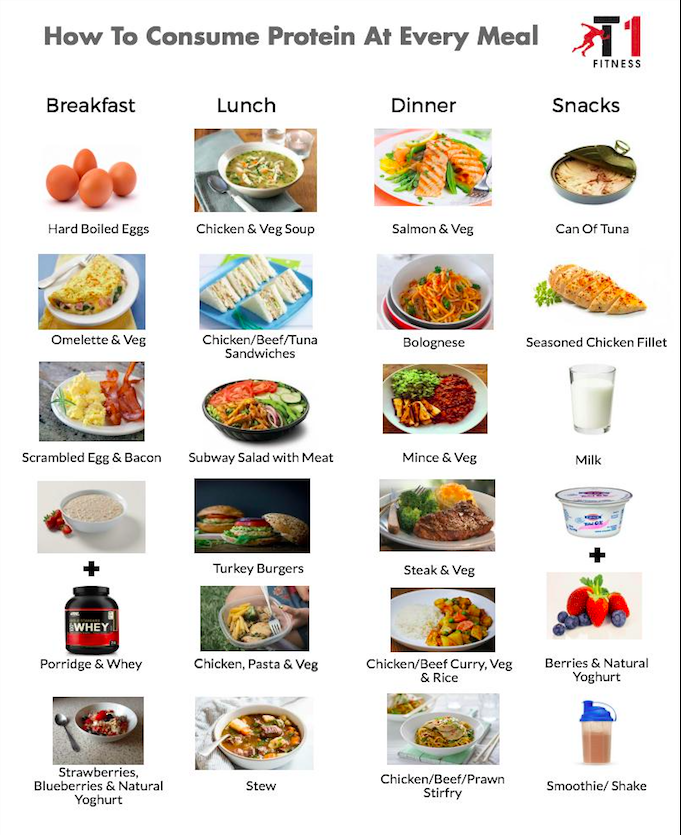One very common thing that we see in the gym is low consumption of protein through the day. Protein seems to be a buzz word of the last year, but why?
If you want to lose weight:
– It tends to keep you fuller for longer (than higher carbohydrate meals).
– It helps retain muscle tone and definition.
– It increases satiety over 24 hours.
– It increases thermogenesis, sleeping metabolic rate & protein balance (thus burning more calories as you sleep).
– It decreases spontaneous energy intake (having the munchies randomly).
– It increases satiety in one meal
– High protein diets have been found to be consistently better for weight loss, fat loss and muscle retention.
It can often be a struggle to eat more protein, so here’s a few practical tips and an easy to follow guide in the picture to get more protein in:
– Start your day with a high protein breakfast. Eggs can be the handiest way to do this (scramble, boil or poach), 6g per egg is a great start! Natural greek yoghurt has 10g/100g, mix it with some fruit and whey for a tasty alternative.
– Snack on high protein foods. Hard boiled eggs, tuna, yoghurt, homemade bars, cooked meat or smoothies are the go to snacks for us.
– Include a large portion of protein at lunch and dinner. Preparing a dish in bulk with plenty of meat in it will ensure you manage this. Chicken and broccoli bake, shepherds pie, chicken curry or a beef stir fry would be ideal. Or simply add some meat to a salad. If your a vegan, add chickpeas, lentils, brans, soy, tofu or various powders such as hemp or pea to your meal to boost the protein levels!
How Much Protein Per Meal?
Everyone’s different (depending on age, goals, gender, activity levels), but 100grams at a minimum is a good starting target for most. So simply divide 100g by the number of times you eat in a day. If you eat 3 times a day and don’t snack, you’ll need about 33 grams of protein per meal. If you eat 3 meals and 2 snacks a day, you’ll need 25 grams of protein per meal and 12 or 13 grams per snack. While protein is the focus, remember to balance every meal with plenty of veg and a fat source.
In conclusion, calories are the over riding factor, so be mindful that increasing your protein doesn’t take you into a calorie surplus or progress will be very hard to come by! If you want specific recommendations for fat loss and training to get you there quicker, contact us today.
References
Lejeun et al. (2006), Wycherley et al (2012), Blom et al. (2006), Weigle et al. (2005)

